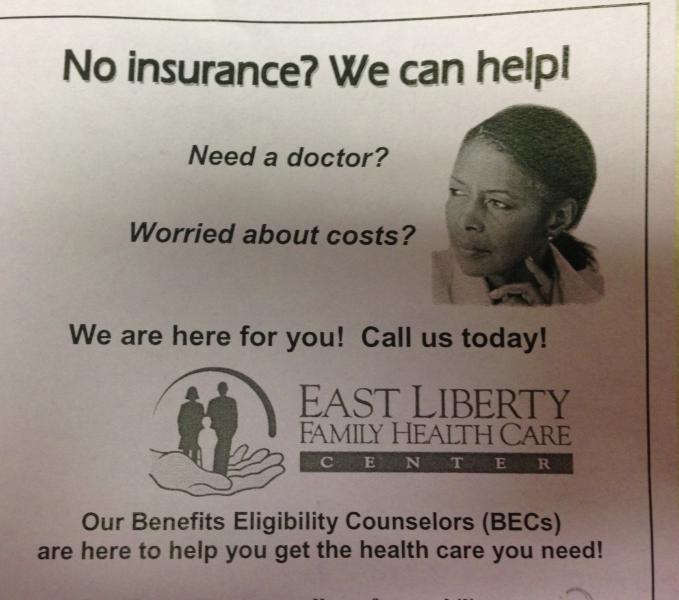Helping Others Gain Access to Care Solves a Public Health Problem
Do you remember in elementary school after a snowstorm and racing to the playground during recess to begin rolling the largest snowball? At first the snowball could fit in the palm of a hand but eventually it got too big to carry and before you knew it, a team was needed to roll the snowball across the field to continue to make it bigger. I’ve related this childhood memory of mine to a current public health problem: lack of access to preventive care. Many in the Pittsburgh area experience this because they cannot get insurance to see a primary care physician. An individual’s health problems can easily grow from a manageable size to a size too large to handle; the cost and requirements to qualify for insurance can be a barrier. According to Pennsylvania Budget and Policy Center there are 94,595 uninsured people living in Allegheny County. Part of my responsibility as a benefits counselor at East Liberty Family Health Care Center is to help patients navigate and advocate for them during the Medicaid application process.

A pamphlet advertises the services offered at East Liberty Family Health Care Center to help patients enroll in insurance.
There are several barriers that can keep patients from applying for benefits. From the very beginning, the clinic’s patients often do not have access to a computer. However, submitting an application electronically decreases the chances of the paper copy getting lost or misplaced at the county assistance office. The most productive thing I can do is sit down with at patient and listen to their story. This is often the most educational part of my job, and I get to make a personal connection to my patients. Equally rewarding is taking an active role in advocating for an individual after the application is submitted. In a system that often loses applications, knowing someone received their medical assistance because of my assistance is definitely gratifying.
In addition to meeting with patients, I track medical assistance application statuses. If a patient is denied assistance, it is up to me to determine why and what the next course of action should be. A particular case that stands out in my mind was when a child was denied assistance. After double-checking that all the paperwork was turned in, I called Department of Public Welfare. I was told the child was denied because there was not a physical copy of the social security card in their application. This reason for denial, especially the denial of a child sounded ridiculous to me. I spent a significant amount of time calling different caseworkers repeatedly until I was told that the child would be approved. It was gratifying to know that the child was granted medical assistance, so that his family would not have to worry about the financial burden of visiting a doctor. Most of all, with my help these parents could participate in preventive and timely care for their child!
Having access to preventive care is a public health crisis that I am addressing on a community level here in Pittsburgh. For the individual with health insurance there is a weight lifted off their shoulders knowing that they can take preventive measures before a health problem becomes a bigger snowball of disease.